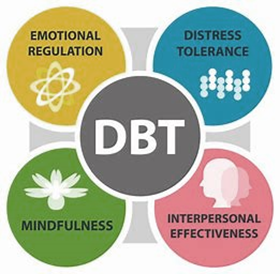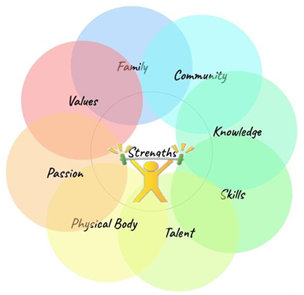
Dialectical behavior therapy (DBT) is a modified type of cognitive behavioral therapy (CBT). Its main goals are to teach people how to live in the moment, develop healthy ways to cope with stress, regulate their emotions, and improve their relationships with others. DBT was originally intended to treat borderline personality disorder (BPD), but it has been adapted to treat other mental health conditions beyond BPD. It can help people who have difficulty with emotional regulation or are exhibiting self-destructive behaviors (such as eating disorders and substance use disorders). This type of therapy is also sometimes used to treat post-traumatic stress disorder (PTSD).

Cognitive-behavioral therapy stresses the role of thinking in how we feel and what we do. It is based on the belief that thoughts, rather than people or events, cause our negative feelings. The therapist assists the client in identifying, testing the reality of, and correcting dysfunctional beliefs underlying his or her thinking. The therapist then helps the client modify those thoughts and the behaviors that flow from them. CBT is a structured collaboration between therapist and client and often calls for homework assignments. CBT has been clinically proven to help clients in a relatively short amount of time with a wide range of disorders, including depression and anxiety.

Strength-based therapy is a type of positive psychotherapy and counseling that focuses more on your internal strengths and resourcefulness, and less on weaknesses, failures, and shortcomings. This focus sets up a positive mindset that helps you build on you best qualities, find your strengths, improve resilience and change worldview to one that is more positive. A positive attitude, in turn, can help your expectations of yourself and others become more reasonable.

Christian counseling is a type of therapy that integrates traditional talk therapy methodologies with Christian belief practices by incorporating theological concepts. It focuses on the navigation of spiritual concerns and everyday life struggles encountered by Christians and all people.